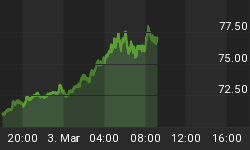That's the conventional wisdom, but recent reports from retailers might suggest otherwise. Early in June, Bed Bath & Beyond issued a profit warning. BB&B's chief executive, Steven Temares, said: "Based upon what we have experienced and has been reported by others, the overall retailing environment, especially sales of merchandise related to the home, has been challenging" (emphasis added). Last week, big-box retailers Best Buy and Circuit City reported softer-than-expected earnings and either revised lower 2008 earnings expectations (Best Buy) or withdrew any guidance (Circuit City). Both retailers noted slower sales of high-margin products such as flat-screen televisions. Today, West Marine, the country's largest retailer of boating supplies and accessories and a recipient of a large part of my paycheck, revised lower its 2007 sales and earnings. Peter Harris, West Marine's chief executive officer, stated: "As we move through the peak season, boating activity throughout the country has not shown signs of recovery, and revenues have been disappointing ... Broadly, sales of higher-priced discretionary items, such as electronics, have been weak, and in-store traffic levels, which we believe reflect boat usage, have been lower than expected." To a large degree, all of these retailers sell consumer discretionary items rather than consumer staples. It is probably no coincidence that the consumer discretionary sub-index of the S&P 500 stock index has underperformed the total index by about 400 basis points this year. We can't help but wonder if the slowdown in nonfarm employment growth (see Chart 1), in large part due to the housing recession, and the decline in house prices (see Chart 2), which is reducing the amount of home equity available for withdrawal, are not beginning to slow the growth in consumer spending. Just a thought.
Chart 1
Chart 2
















